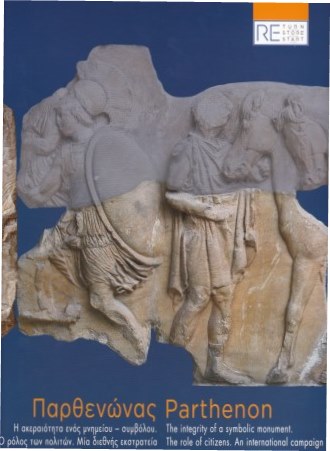
Two Greek foundations, the Marianna Vardinoyannis Foundation in collaboration with the Melina Mercouri Foundation, yesterday Thursday 26 June 2014, in Athens, launched a new campaign for the reunification of the Parthenon sculptures: Return The Marbles, Restore Parthenon, Restart History.
The conference at the superlative Acropolis Museum, which took place on Thursday 26 June 2014, was introduced by Marianna Vardinoyannis, the Goodwill Ambassador of UNESCO and president of the Marianna V. Vardinoyannis Foundation, moderated by erudite journalist Pavlos Tsimas. The Greek Minister of Culture, Konstantinos Tasoulas, and Minister of Tourism, Olga Kefalogianni also gave their respective addresses. The Director-General of UNESCO, Irina Bokova sent a message in support of the new campaign.
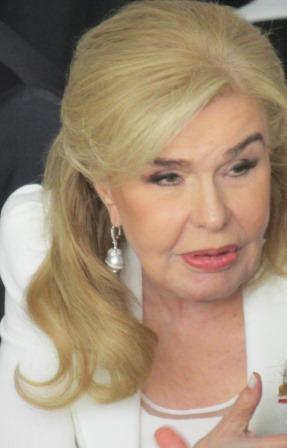
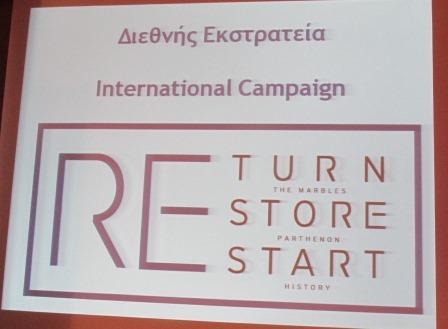
A number of guest speakers addressed the audience on various aspects surrounding reunification starting with the very charismatic Mounir Bouchenaki, Honorary Special Advisor of the Director-General of UNESCO. Mr Bouchenaki spoke about cultural heritage as the 'soul' of every nation. In the journey to the conference, he had spoken about the times he had met with the Director of the British Museum, Neil MacGregor and made his own appeal for the sculptures of the Parthenon. Mr Bouchenaki feels that such a magnanimous gesture would make a great difference to the world.
Professor Pandermalis, President of the Acropolis Museum, gave the background on the creation of the museum and the issues they faced when they were displaying the sculptures of the Parthenon - how they dealt with the fact that half are in Bloomsbury, in the British Museum. He went on to show and explain the ambitious digital restoration program of the Parthenon sculptures that the Acropolis Museum has started on the 5th anniversary of the Museum. Horse riders of the west frieze are presented in 3D digital images with additions of copper weapons and bridles, with alternating light and colour testing.

William St Clair, Senior Research Fellow Institute of English Studies, School of advanced Study, University of London referred to the return of the sculptures of the Parthenon as a 200 year old case, a paradigm. He discussed the firman, intellectual property, the language and stewardship of the British Museum, integrity.
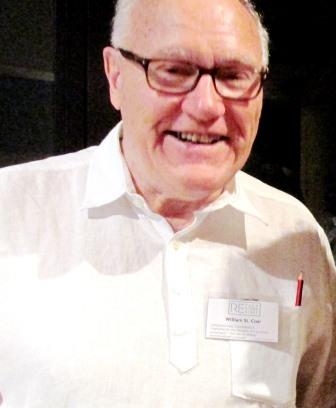
Mark Vlasic, Professor of Law at Georgetown University gave a talk on fighting impunity from war crimes or corruption and how this might also extend to stolen antiquities.
Manouella Pavlidou, Secretary General of the 'Melina Mercouri Foundation' paid tribute to the late Melina Mercouri and her passion for the return of the sculptures to Greece.
Christoforos Argyropoulos, President of the Melina Mercouri Foundationand the Greek Committee for the Reunification of the Parthenon Sculptures, upheld a word we often use, respect. And respect with reference to what continues to be symbol of values in society. And he also mentioned that light, that Athenian light which makes viewing the sculptures of the Parthenon, so special. We could not agree more!
David Hill, Chairman of the International Association for the Reunification of the Parthenon Sculptures, a ten year old organisation which has an international community of 16 member countries including Britain, all campaigning in favour of reunification, emphasised this association’s ongoing commitment to the cause and working closely and in co-operation with the Greek government.
The British Committee for the Reunification of the Parthenon Marbles (BCRPM), presented the rich history of the campaign which was started in the UK in 1983 by James Cubitt, a British architect and whose wife Eleni Cubitt was Secretary for nearly three decades and continues to be the founder. The presentation explained the various level of campaigning plus highlighted just a few examples how individuals had made their own stand. Starting with swimming and cycling, Dr Christophe Stockdale; Greek students in the courtyard of the British Museum singing, dancing, reciting poetry, Sofka Smales on Trafalgar’s Plinth; Mary Phillips and her memorable stand. Then there followed clips from a selection of BCRPM members and supporters speaking at the International London Colloquy in 2012, including Professor Judith Herrin,British archaeologist and academic of Late Antiquity, Professor Emerita of Late Antique and Byzantine Studies at King's College London. Judith explained the tough job the BCRPM faced in the 80’s and 90’s praising Robert Browning and Eleni Cubitt. Judith went on to say that she continues to be a committed member to the cause would like to see both the British government and the British Museum face up to their responsibilities.
Christina Borg, literary Journalist and a member of BCRPM paying tribute to the late Christopher Hitchen's and his 2008 edition of The Parthenon Sculptures: A Case for Reunification, providing a very old cause with a new direction. The nub of the argument was that with the opening of the new Acropolis Museum (2009) the sculptures of the Parthenon must be seen as a unified whole, as part of a continuous narrative, in their original context. Christina emphasised that Hitchens deployed his extensive knowledge and reason to advance the Parthenon campaign. In his view Greece’s domestic and political position was irrelevant. This was a matter of principle.
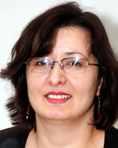
Eddie O'Hara as Chairman of the BCRPM and Honorary President of Marbles Reunited, on BCRPM’s stand, immunised against the floodgates argument based on the story of the fragmented sculptures as unique. Eddie feels that there is no other example of a UNESCO world heritage fixed monument, so defaced and so ‘unreunified’, therefore to “reunify the Marbles would not open any floodgate because there is not a lot of precedent it could set. The onus is on those who do not support the reunification. And the beauty of literally reunited ‘other halves’, pieces of the same block, to be seen by the world in the Acropolis Museum, is the one place on earth where it is possible to have a single and aesthetic experience simultaneously of the Parthenon and its sculptures.”
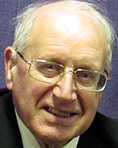
Tom Flynn, art historian and BCRPM member, explained the concept of the Universal museum. He stated that the current display of the Parthenon sculptures in the British Museum’s make a mockery of BM’s claim to coherent educational purpose. The contrast between the two galleries – London ad Athens - is enough to reduce anyone to tears. Museums will have to listen to what their public say and act upon it. He concluded that Neil MacGregor ought to do the right thing, cover himself in glory and reunite the marbles now.

Andrew Dismore, London Assembly Member, former Labour MP for Hendon, feels that arguments about ownership are sterile, dangerous and that a court case would put back the political and cultural case. He concluded that legislative change could be effected if there is the political will to do it.

George Bizos, also a BCRPM member and human rights advocate and author, highlighted how we are all involved in this campaign and whilst the MacGregor’s of this world and those that think like him, say ‘well Greece is in a sad state, they can’t do nothing’ –they don’t understand Greek history, the number of occasions Greece was practically burned down, but rose like a Phoenix…. And we are confident he said, ‘that it will happen again’.
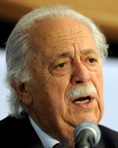
Marlen Godwin concluded the British Committee for the Reunification of the Parthenon Marbles presentation by saying:
“The background and history was shown not because we need to dwell on it but because it is important to know where the campaign to reunite the sculptures of the Parthenon has been, so as to inform where the campaign goes in the future. We do need to recognise the current political dispensation in the United Kingdom and working within that, noting Britain's recent essays in Europe. There is no doubt that the armoury is full, every single and possible argument has been rehearsed and addressed, not least as we soak up the display of the sculptures, right here in the amazing Acropolis Museum - it is imperative that the focus of any campaign continues to harness the positive energy gathered over the decades from civil society and to find a way forward with legislative change. Key too is orchestrating the diverse voices from the many parts of the globe, all equally passionate for the cause. We thank Marianna Vardinoyanni and her foundation, and the Melina Mercouri Foundation for inviting us to speak, and wish both every success with this new campaign."

Fabrizio Micalizzi, Secretary of the Swiss Committee for the Return of the Parthenon Marbles, spoke about the reunification cause as a strong European concern. That a creative proposal would provide the British Museum and the Acropolis Museum, with a ‘win win’ situation for Parthenon Marbles.
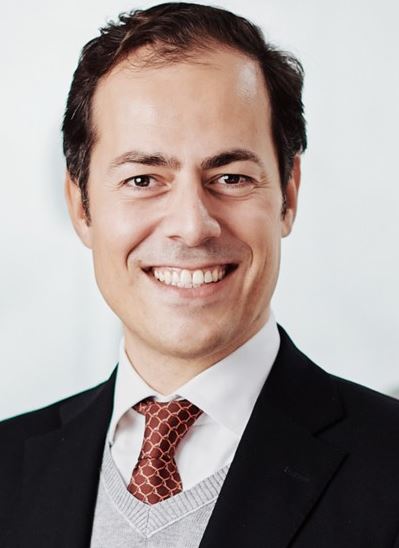
Angelos Delivorrias, Director of the Benaki Museum, also spoke mentioning Eleni Cubitt and Professor Anthony Snodgrass, past Chairman and Honorary President of the British Committee for the Reunification of the Parthenon Marbles. He emphasised the cause, its supporters and the need to have Greece as firm player in the reunification campaign and congratulated the two foundation on organising today’s event and launch of a new campaign.
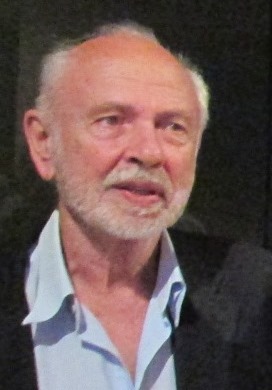
Illias Nikolakopoulos, Professor of Social Theory & Sociology, University of Athens had carried out pools and conducted a study amongst Greeks to gauge the level of information geographically, socially and within different age groups. Considering the perceptions of different socio-economic groups towards the Greek state, cultural foundations and the international media. This critical information gathering could be used to raise awareness of this cause and cultural mobility.
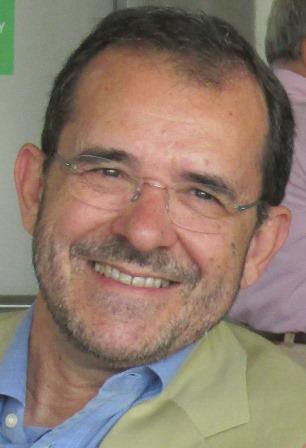 Rounding up an intense, yet creative day moderator Pavlos Tsimas, journalist and presenter, thanked everyone that had attended and in particular Marianna Vardinoyannis, the Marianna Vadinoyannis Foundation and the Melina Mercouri Foundation for this initiative, the campaign: Return The Marbles Restore Parthenon Restart History. He remembered the emotional moment in 1993 when he interviewed for the last time, the late Melina Mercouri and how this interview continues to haunt him. The elation he felt when Professor Pandermalis opened the museum. His visit to Lord Elgin's home in Scotland, Cavafy's writing from Alexandria and more, stressing society's moral values; our obligation to maintain these values; garnering support for the cause in Greece and globally; and the launch of this new campaign.
Rounding up an intense, yet creative day moderator Pavlos Tsimas, journalist and presenter, thanked everyone that had attended and in particular Marianna Vardinoyannis, the Marianna Vadinoyannis Foundation and the Melina Mercouri Foundation for this initiative, the campaign: Return The Marbles Restore Parthenon Restart History. He remembered the emotional moment in 1993 when he interviewed for the last time, the late Melina Mercouri and how this interview continues to haunt him. The elation he felt when Professor Pandermalis opened the museum. His visit to Lord Elgin's home in Scotland, Cavafy's writing from Alexandria and more, stressing society's moral values; our obligation to maintain these values; garnering support for the cause in Greece and globally; and the launch of this new campaign.

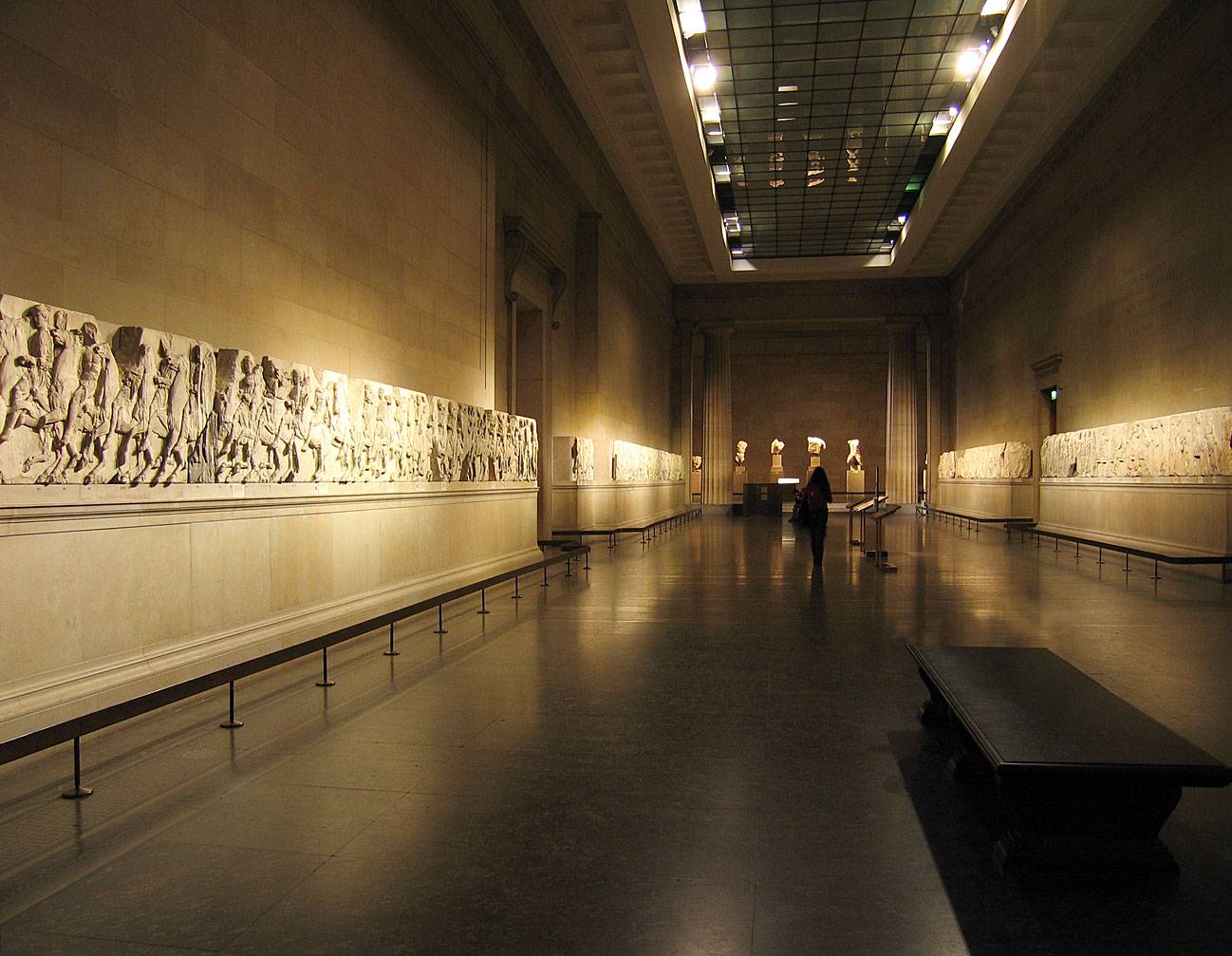
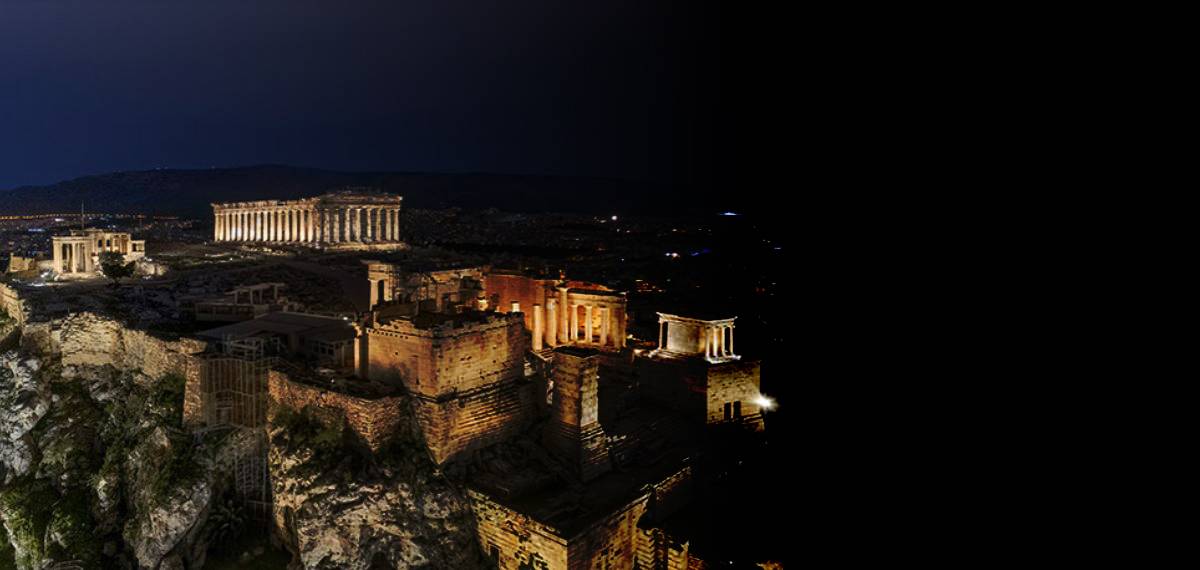
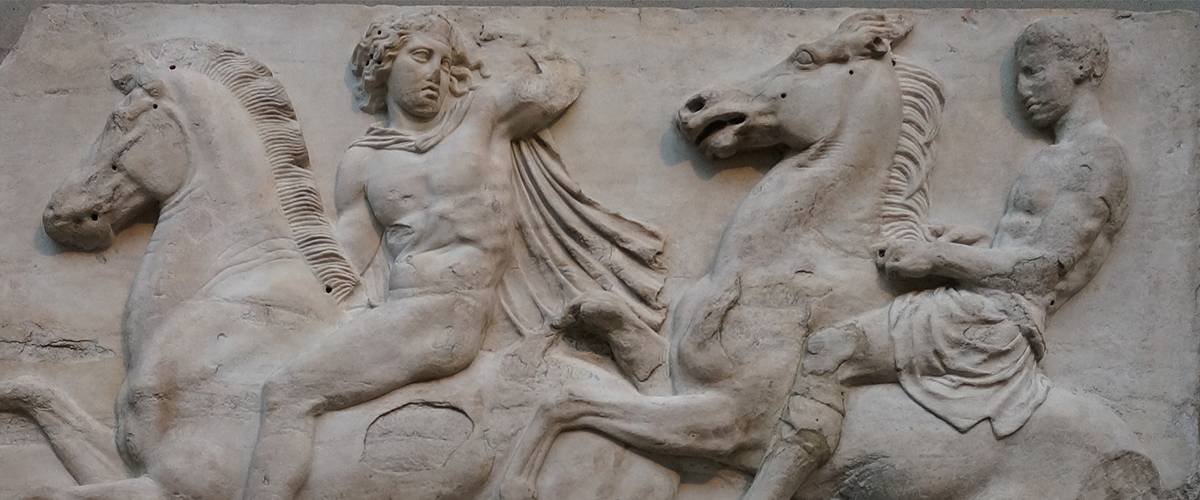
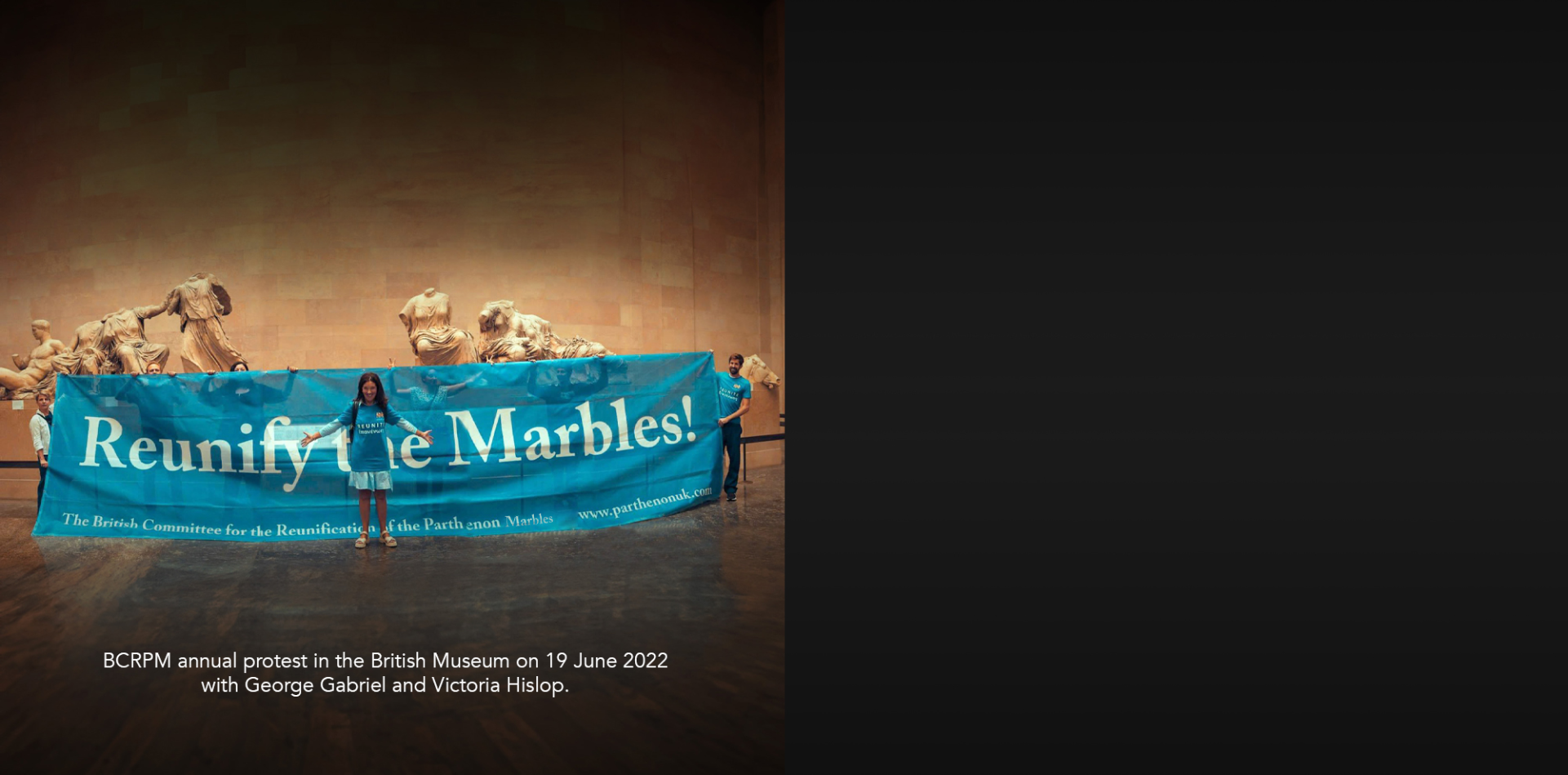
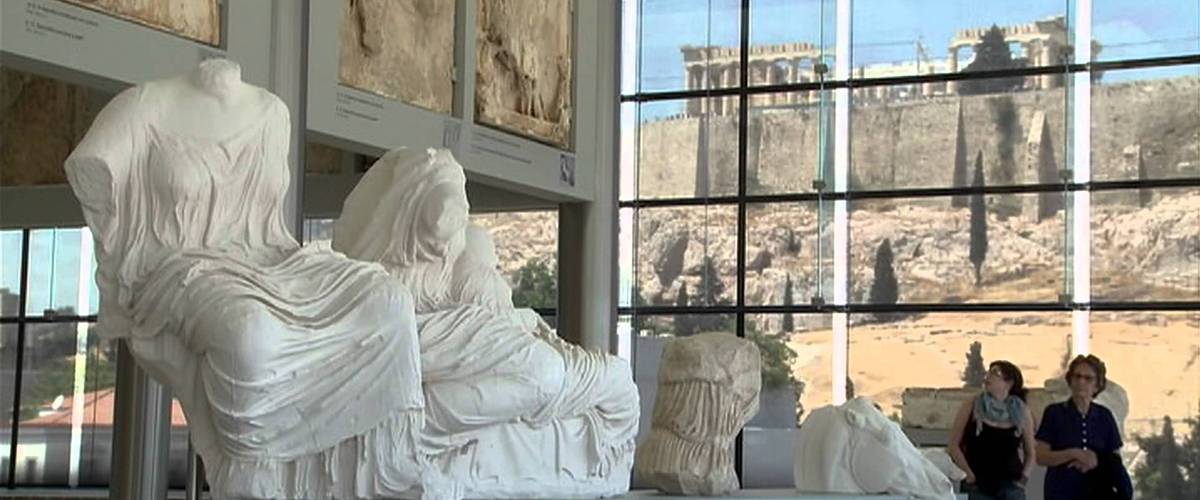
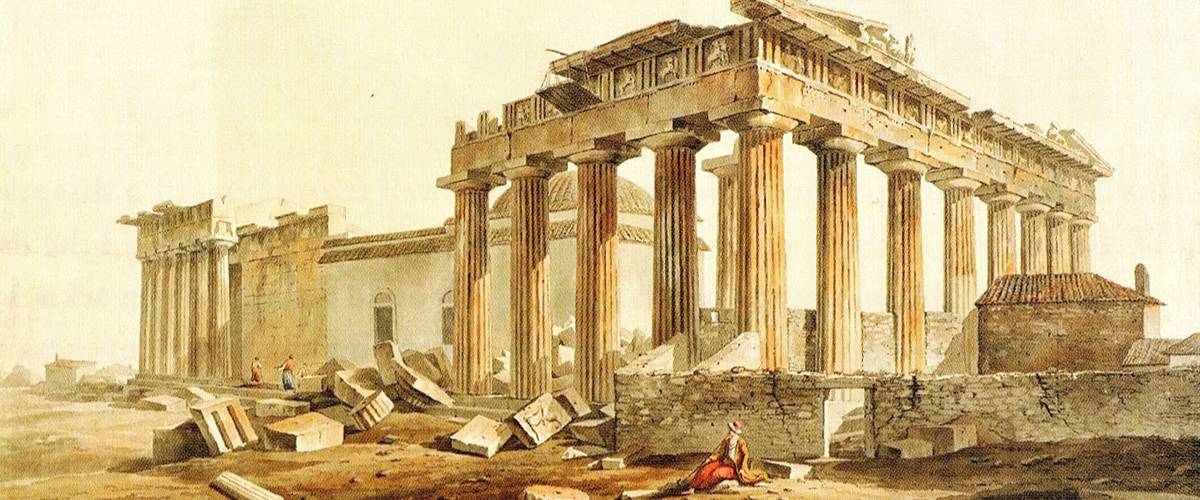
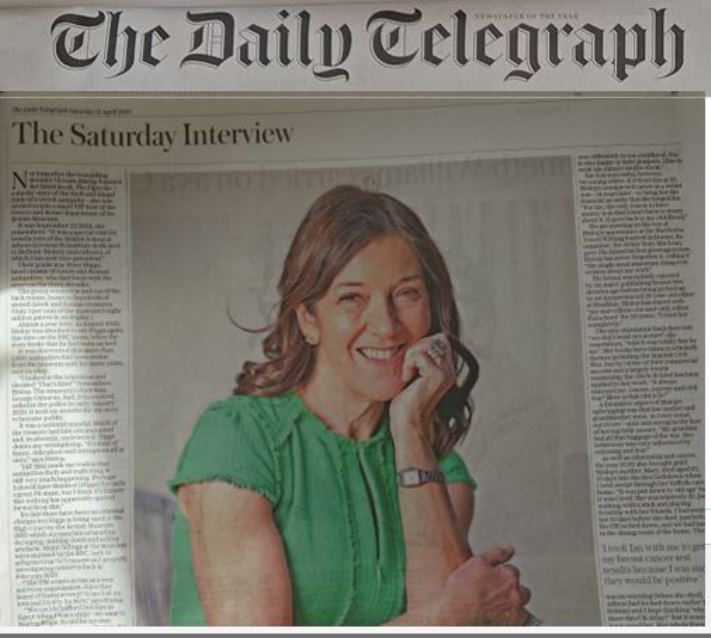
Comments powered by CComment